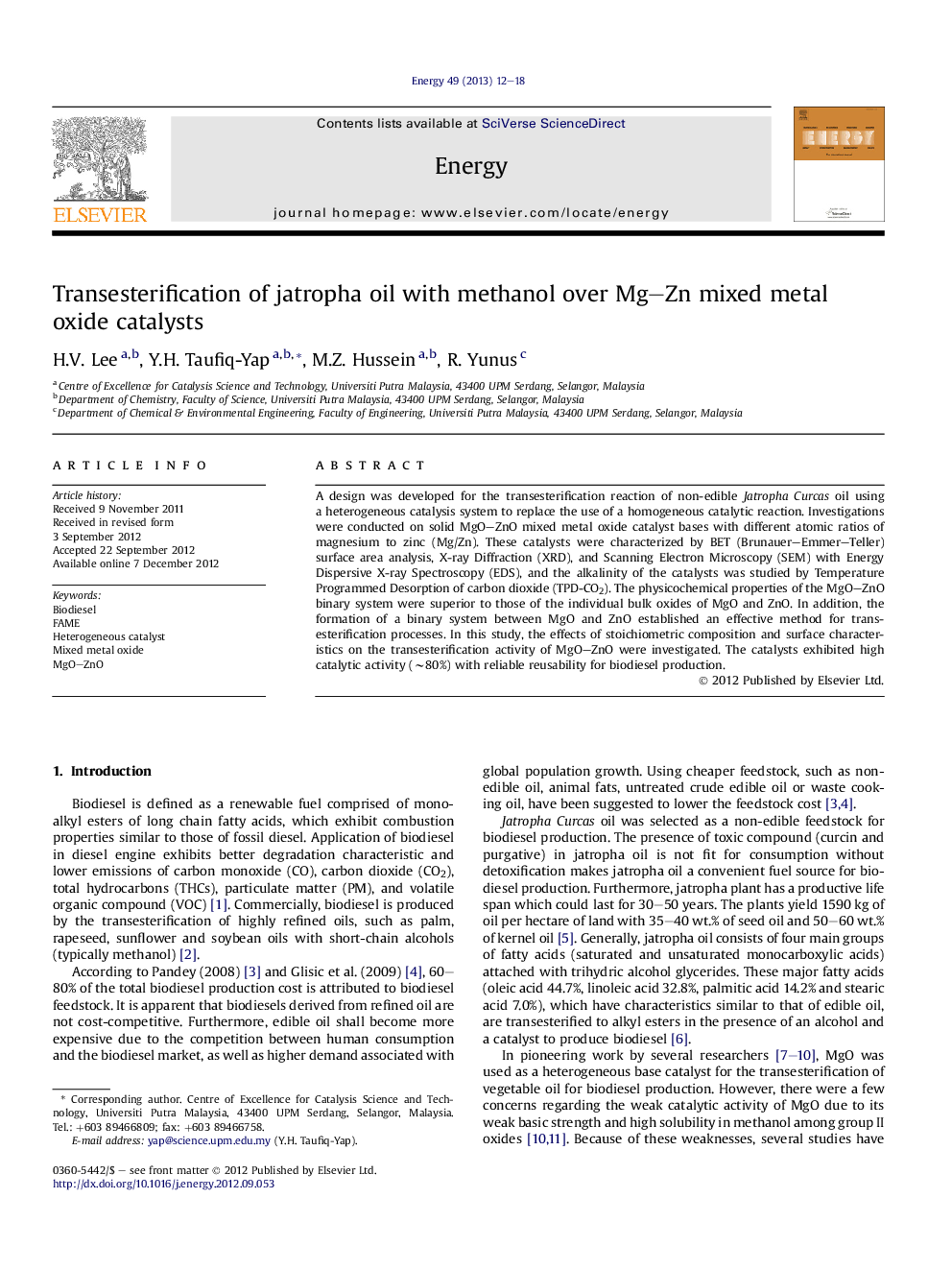| Article ID | Journal | Published Year | Pages | File Type |
|---|---|---|---|---|
| 1733266 | Energy | 2013 | 7 Pages |
A design was developed for the transesterification reaction of non-edible Jatropha Curcas oil using a heterogeneous catalysis system to replace the use of a homogeneous catalytic reaction. Investigations were conducted on solid MgO–ZnO mixed metal oxide catalyst bases with different atomic ratios of magnesium to zinc (Mg/Zn). These catalysts were characterized by BET (Brunauer–Emmer–Teller) surface area analysis, X-ray Diffraction (XRD), and Scanning Electron Microscopy (SEM) with Energy Dispersive X-ray Spectroscopy (EDS), and the alkalinity of the catalysts was studied by Temperature Programmed Desorption of carbon dioxide (TPD-CO2). The physicochemical properties of the MgO–ZnO binary system were superior to those of the individual bulk oxides of MgO and ZnO. In addition, the formation of a binary system between MgO and ZnO established an effective method for transesterification processes. In this study, the effects of stoichiometric composition and surface characteristics on the transesterification activity of MgO–ZnO were investigated. The catalysts exhibited high catalytic activity (∼80%) with reliable reusability for biodiesel production.
► Transesterification reaction of non-edible jatropha oil using solid base catalyst. ► MgO–ZnO binary system showed superior effect than the individual MgO and ZnO. ► More than 80% of FAME yield was achieved under mild condition. ► MgO–ZnO catalyst showed reliable reusability throughout 5 runs. ► Fuel properties of prepared biodiesel were complying with the biodiesel standards.
